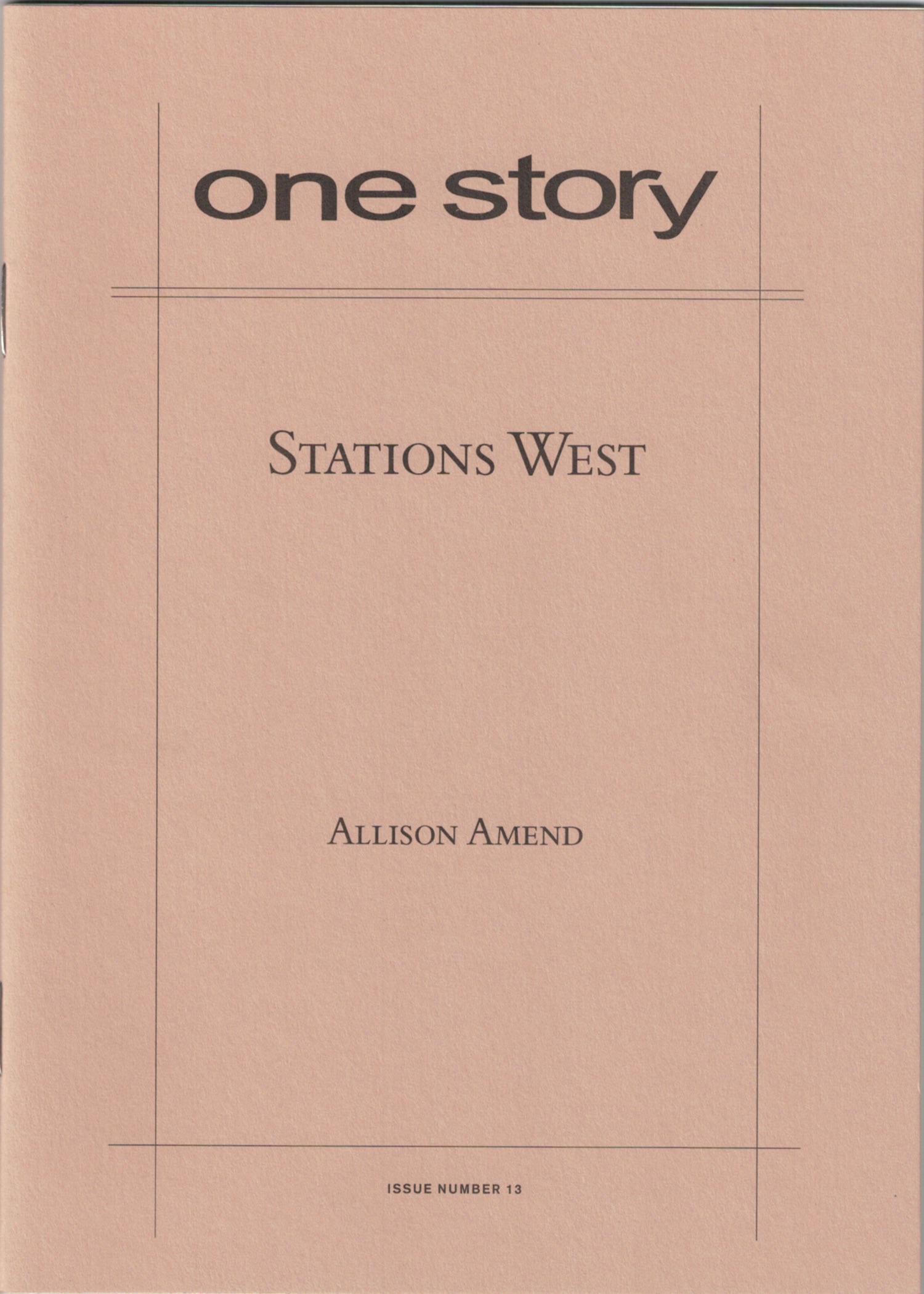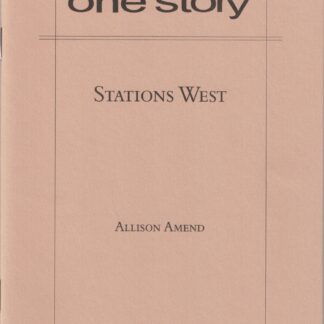
Stations West
$2.50
22 in stock
Excerpt
Boggy Haurowitz rolls into town during the hot summer months of 1859. The word “town” is used lightly, for it is little more than a station, really, Denton Station. A fading platform, slightly absurd for its knotted pretension, since the train does not travel there, nor will it for many years. The stagecoach does not stop; Boggy simply jumps off its slowing hulk, sending his leather satchel on before him, rolling in the dust. Boggy stands up, rubs his shoulder, sore from the fall. He does not know the town’s name, printed in childish handwriting on the bench in the shade of the shelter.
Allison Amend
Allison Amend was born in Chicago on a day when the Cubs beat the Mets 2-0. She attended Stanford University and holds an MFA from the University of Iowa Writers’ Workshop. Her work has received awards from and appeared in Black Warrior Review, StoryQuarterly, Bellevue Literary Review, the Atlantic Monthly, Prairie Schooner and Other Voices, among other publications. Her debut short story collection, Things That Pass for Love, was published in October 2008 by OV Books. Visit her on the web at www.allisonamend.com.
Q&A by Hannah Tinti
- HT: Where did the idea for this story come from?
- AA: My last year of college, my family lost my three surviving grandparents and the dog in the span of six weeks. I spent most of the spring triangulating between college in California, my hometown Chicago, and Tulsa, Oklahoma, where my maternal grandparents lived. After the last funeral, my cousins and I went through my grandparents’ house, taking mementos. My Tulsa-based cousins scored hi-fi equipment, my brother took home a box of coffee candies, and I ended up with a copy of “Sweatin’ to the Oldies.” I also found “The Jews of Oklahoma,” a volume so thin it was almost hidden between “The Thornbirds” and “A History of Zionism.” Fuzzy from funerals, bloated from cold cuts and stunned by loss, I read about Bogy Johnson, the first Jewish immigrant in Oklahoma. It was weird and wonderful enough that it merited a story.
- HT: What was the most challenging aspect of writing this story?
- AA: I had to edit out several thousand anachronisms. Writing this story made me realize what a creature of the 21st Century I am. I kept wanting phones to ring, emails to arrive, airplanes to take off. Having a plot rely on horses and sunsets necessarily slowed down the action.
- HT: How did you make “Stations West” feel so authentic Did you do a great deal of research?
- AA: I did do a great deal of research, but mostly to avoid writing the story. Research is the procrastinator’s cigarette habit. You can do research for years; it counts as writing and you don’t have to actually write. At some point you have to put down the book and pick up the (proverbial) pen. I have boxes and boxes of notecards on Oklahoma and Colorado history cross-referenced by date and subject matter, and I don’t think I have ever once consulted them.
- HT: Do you think that ‘wanderlust’ is something that is imposed by circumstances, or ‘in the blood’?
- AA: The old nature vs. nurture conundrum. I’m a nature fan. Certainly, circumstances have to be unpleasant enough or (un)challenging enough to spur someone to leave his/her homeland, but there are those who are travelers and those who are homemakers. I’m of the former group. I think most Americans are.
- HT: What is the best bit of advice about writing you have ever received?
- AA: About writing in general, the best piece of advice I ever received was from Frank Conroy. He said each writer was only allowed three exclamation points in his/her career, so we had better use them wisely. If the words themselves don’t convey the proper emphasis, then all the punctuation marks in the world won’t make it better writing. Regarding historical fiction, E.L. Doctorow recommended “making it up.” According to Doctorow, we’ve all seen enough movies and television and read enough accounts of the past that we’re better off relying on our imaginations. Nine times out of ten, what you’ve invented will turn out to be true, and if it’s not, you can change it later.
- HT: What are you working on now?
- AA: I’m trying to finish two novels. One is tentatively titled “The Exciting Side of Normal,” ten years in the life of a single mother in Chicago. The other is the continuation of “Stations West.” Garfield becomes the patriarch; the family moves back to Oklahoma as the Territory attains statehood.
